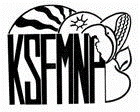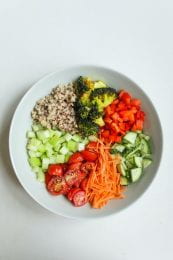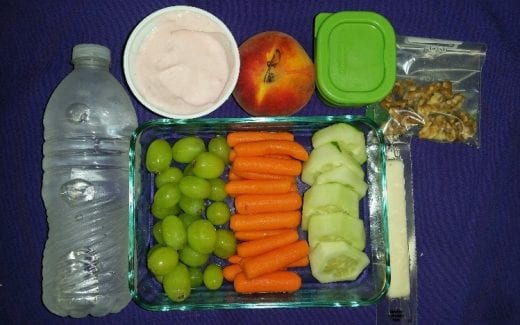Low-income Kansas seniors may be eligible for a program that provides checks to purchase fresh, unprocessed fruits and vegetables and honey at farmers markets in selected counties throughout the state.
to purchase fresh, unprocessed fruits and vegetables and honey at farmers markets in selected counties throughout the state.
The Kansas Senior Farmers Market Nutrition Program (KSFMNP) is providing low-income seniors who meet age and income requirements with $35 in checks to purchase fresh fruits, vegetables, herbs and honey from authorized farmers at local participating farmers markets, June 1 through November 1, 2022. Checks are available in $5 increments.
To be eligible to receive KSFMNP checks, the following criteria must be met:
- Age: A senior must be 60 years old or older, or at least 55 years old and a member of an Indian Tribal Organization, on the day the money is issued.
- Income level: A senior’s annual gross household income (before taxes are withheld) must be at or below 185% of the federal poverty level. For example, a household of one must have an annual gross income at or below $25,142, or a monthly gross income at or below $2,096.
Applications for the Kansas Senior Farmers Market Nutrition Program will be available starting on June 1st, at any Post Rock Extension District office. Seniors may apply on-site from 8:00a.m. – 4:30p.m. Monday through Friday. Funds are limited and benefits will be provided on a first-come, first-served basis. For more information about the Kansas Senior Farmers Market Nutrition Program, call your local Post Rock Extension District office.
Eligible foods to purchase with the KSFMNP checks from authorized farmers at participating farmers markets are defined as “fresh, nutritious, unprepared, locally grown fruits, vegetables, locally produced honey and herbs for human consumption that are produced in Kansas under normal growing conditions.”
The Senior Farmers’ Market Program is a project of the U.S. Department of Agriculture (USDA) Food and Nutrition Service (FNS). The program is coordinated by the Kansas Department of Health and Environment (KDHE), which is collaborating with local partners to identify and distribute checks to eligible seniors. This institution is an equal opportunity provider.
By: Ashley Svaty
 meet recommended intakes for dietary fiber. Dietary fiber is a complex form of carbohydrate. Several decades of studies have confirmed the health benefits of eating a fiber-rich diet. Only plant foods contain fiber and diets containing fiber such as fruits, vegetables, and whole grains may reduce the risk of coronary heart disease and improve regularity.
meet recommended intakes for dietary fiber. Dietary fiber is a complex form of carbohydrate. Several decades of studies have confirmed the health benefits of eating a fiber-rich diet. Only plant foods contain fiber and diets containing fiber such as fruits, vegetables, and whole grains may reduce the risk of coronary heart disease and improve regularity. Make half your grains whole grains. This message still holds true! Choose 100% whole grain bread, pasta, crackers, or cereal.
Make half your grains whole grains. This message still holds true! Choose 100% whole grain bread, pasta, crackers, or cereal. Whether you are making your own lunch for work or packing your child’s school lunch, keep these tips in mind for a safe and nutritious to-go meal!
Whether you are making your own lunch for work or packing your child’s school lunch, keep these tips in mind for a safe and nutritious to-go meal! to regional produced food options, economic opportunity, and educational resources. In the effort to conduct a food assessment in North Central Kansas, the Council is seeking your input about local foods in your community and the 12-county region. This 20-question survey will take approximately 5-10 minutes to complete. Your feedback is valuable and we appreciate you taking the time to help support local foods!
to regional produced food options, economic opportunity, and educational resources. In the effort to conduct a food assessment in North Central Kansas, the Council is seeking your input about local foods in your community and the 12-county region. This 20-question survey will take approximately 5-10 minutes to complete. Your feedback is valuable and we appreciate you taking the time to help support local foods!